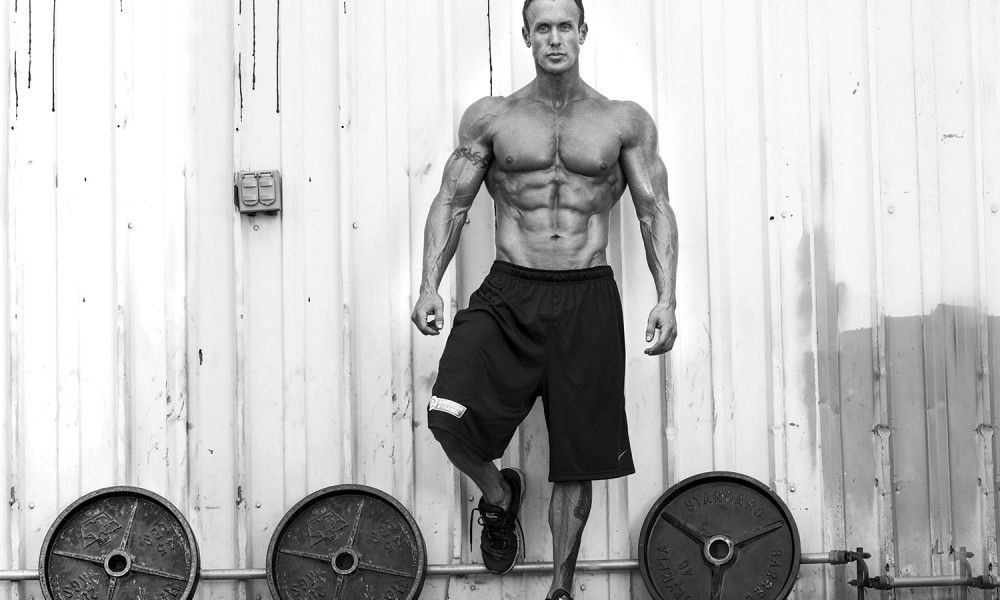

When describing Brandan Fokken on paper, there’s a danger of wearing out the backslash key on your laptop: pro athlete/model/wellness coordinator/coach/spokesperson/writer. The list could go on, but the bottom line is this: In a world with no shortage of ripped and handsome guys trying to parlay a career out of their muscles, Fokken has found a way to diversify and monetize his hard-earned and God-given attributes better than almost any other male athlete in the industry.
The 36-year-old Fokken, who snagged his IFBB pro card in September, currently represents 16 different sponsors ranging from oatmeal to ethanol. He has done promotional work for Nike and is on the cusp of signing a deal with another blue-chip apparel company. If the fitness industry were the stock market, Fokken would be Warren Buffett. And like the billionaire investor, he wants his name to inspire that same level of faith and confidence.
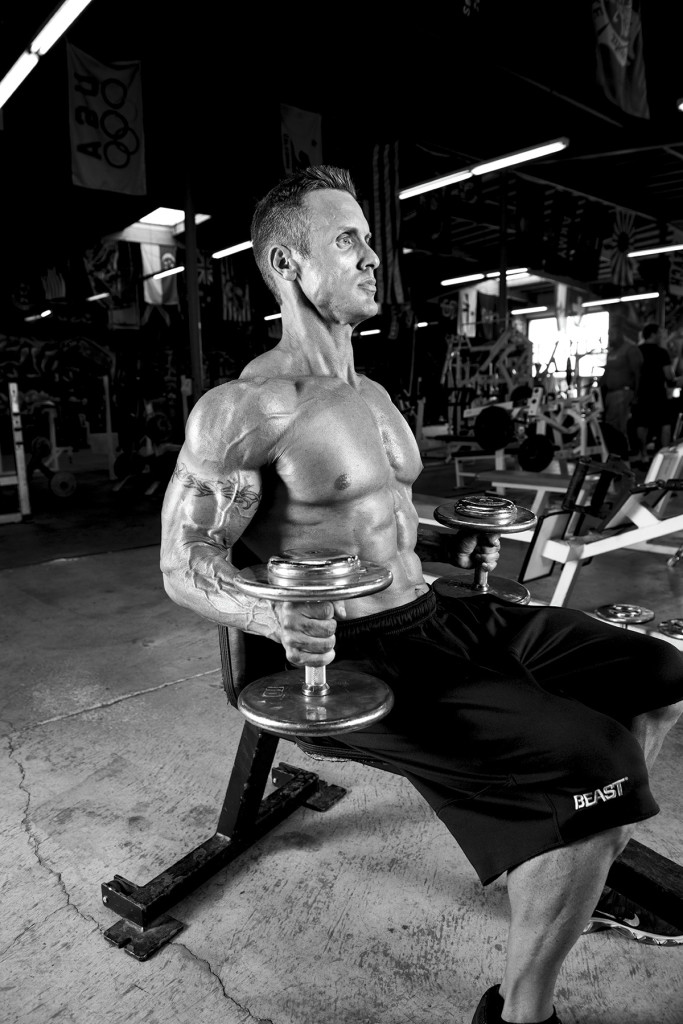
“What is worth more to me than money is credibility. With credibility you can do anything,” he says. “My long-term goal is to create credibility and write my own ticket. If I decide I want to be a keynote speaker, my name will have enough credibility that people will pay for that service. If I decide to open a restaurant or promote a show, my name has that credibility.”
Mike Carlson: Most people know you as a fitness model and spokesperson, but tell me about your nine-to-five job.
Brandan Fokken: I am a wellness coordinator for POET, the world’s largest ethanol biorefinery. We have a state-of-the-art gym, and I run that. I am a salaried employee, so my hours can vary quite a bit. I do classes, one-on-one training, nutritional help, anything you see in a gym—I do all that. We also have a wellness director above me, and her strengths mix with mine perfectly. Anything revolving around health and fitness, we are covering here. The company is very forward thinking. I would compare it to a Microsoft or a Google in that way.
MC: I know you started as a bodybuilder, but Men’s Physique seems to be a much better match for you.
BF: It’s more marketable, too. You will always have the die-hard bodybuilder fans who want to see a mass monster, but I was never going to be a pro bodybuilder. This fits my physique and how I train. It’s allowed me to parlay that into winning online physique contests and then signing with Bodybulding.com. I currently have 16 regular sponsors. Companies sell what’s marketable. It’s a look they are selling as opposed to a name or a title. I realized that right away, and I marketed myself that way with that look.
MC: How many hours a week do you spend on sponsorship obligations?
BF: I’m probably spending eight hours during the week, creating content, writing stuff, creating video, doing Periscopes. It can vary by the week. Weekends are often spent at shows, appearances, photo shoots. I’m usually gone two to three weekends a month.
MC: There are tons of competition to get sponsors. Clearly companies feel that you deliver a return on their investment. What do you do that makes you so valuable as a sponsored athlete?
BF: I am professional. I am real. I am not the guy who has to sell their soul for a sponsor, and I never will. I follow rules, but I don’t conform. I am always going to be myself, and that is a valuable product. I do a lot of things well. I am a speaker. I am a writer. I am a pro competitor, but I am also a coach. I can fit in a niche wherever a company needs me. I set realistic expectations, and I follow through with them. I don’t gossip. I put nothing but positivity out there.
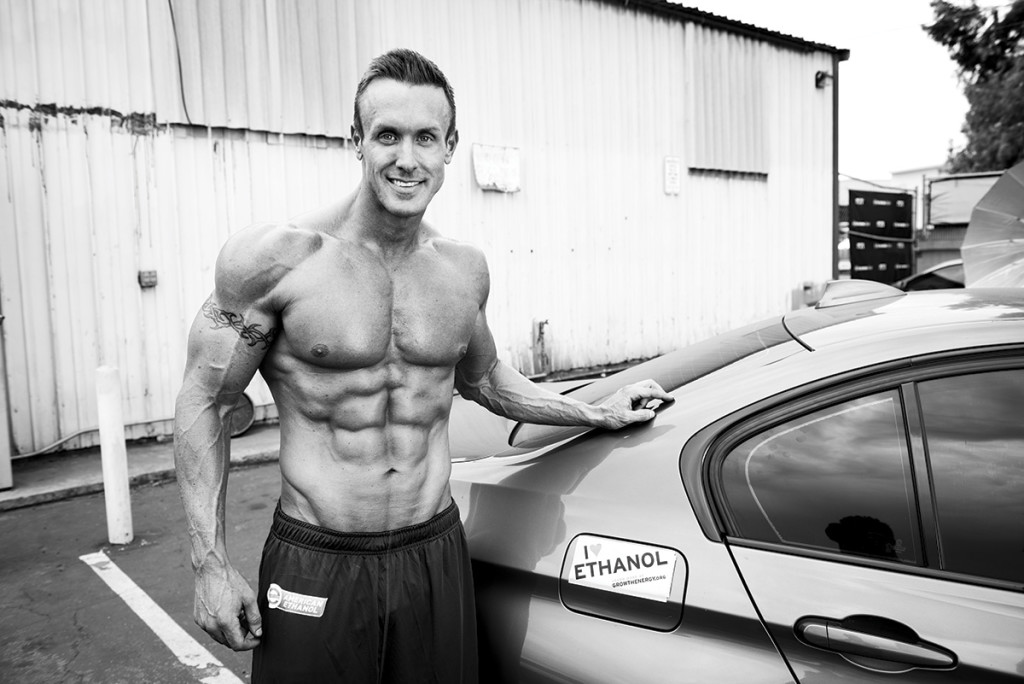
MC: What advice would you give a young guy who wants to attain sponsors and spokesperson jobs? How does he open that door and keep it open?
BF: I always joke with the younger guys and say, “Don’t take the underwear pictures.” You see a lot of these guys get into fitness, and right away they put up photos of themselves in their underwear. Do you think you’re going to get a bigger sponsor doing that? No. It is not going to happen. If you want a company to respect you, you have to respect yourself. I will never do a shoot like that.
MC: But bodybuilders and fitness models have been doing shoots like that since the 1950s.
BF: And do I have anything against it? Not at all, but from a marketing perspective, you aren’t going to do that. Even Jamie Eason regrets all the stuff she did at the beginning of her career. Unfortunately, there are too many people out there willing to do it, and that’s why these guys are expendable. If they are willing to do anything, the odds are that they’re looking for the fast route to get something done. They need to take the time and effort to put the work in to make something happen. What is their work ethic going to be like with a company? Are they really going to produce, or are they going to look for the fast way to make money or get popular? It took me a long damn time. Things happened fast, but it took me a lot of work and a lot of hours. If I had been willing to take some stupid deal, I would probably still be that guy posting “Shredz 15 Percent Off, Use My Code,” because I would be expendable.
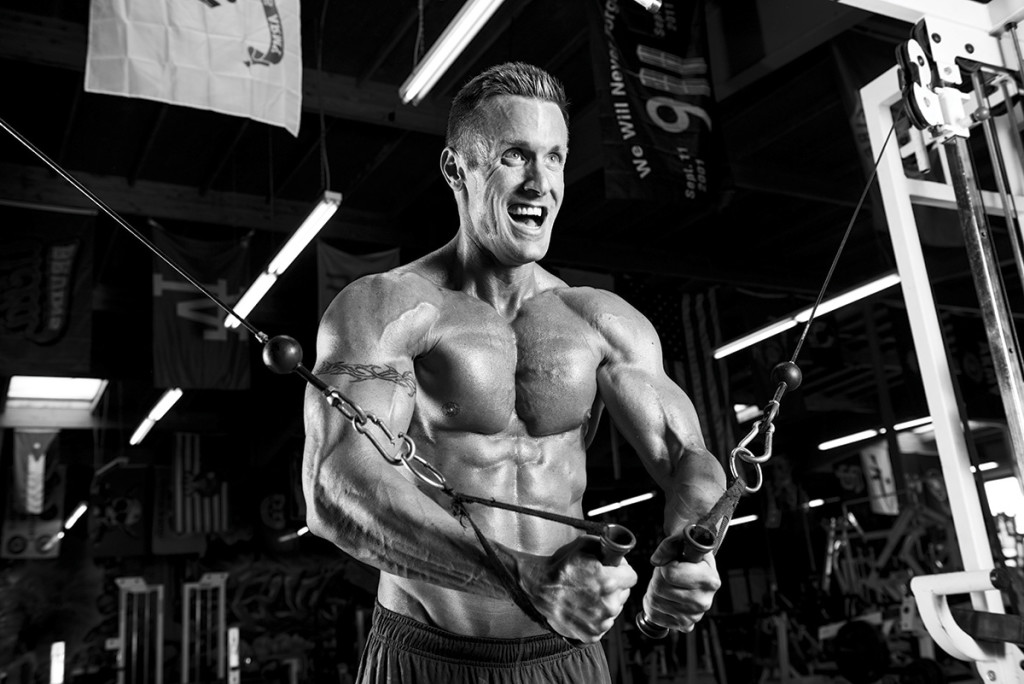
MC: Do you turn down many sponsors?
BF: I turn companies down all the time. If a company doesn’t have a product I would personally use or believe in, I don’t promote them. You will see me get up every morning and eat MyOatmeal and MuscleEggs and take my Beast supplements. I put ethanol in my vehicles. That is how I live my life.
MC: What kind of a workout split do you follow?
BF: I lift seven days a week. I’ll do back, legs, shoulder, chest, arms. It can be in any order. I go by how much time I have and how I feel. I call my strategy “volume-angle” workouts. I do high-volume, high-reps, and I hit my muscles from as many angles as I can. I don’t need to be any bigger; I just need to shape what I have. On the weekend, I do touch-up work where I hit weak points. I might concentrate on upper chest or do a second back workout. I’m always working the weak points.
MC: Talk about your diet philosophy.
BF: I have tried everything. When I first started dieting I counted every single ounce. If it wasn’t measured, I wouldn’t eat it. The best shape I got in was a few years ago, and I didn’t count anything. I guess you could say I was doing Flexible Dieting, but I wasn’t counting macros. For my last prep, I took 10 months off and built my metabolism. I was eating all the same stuff day in and day out, and I was varying my protein and varying my veggies, but I never counted anything. I went on how I felt and how I was training and I rotated foods in and out. Exacts are great for a newbie, but I’ve done this for so long I can eyeball a portion and it works. It didn’t put any stress on me.
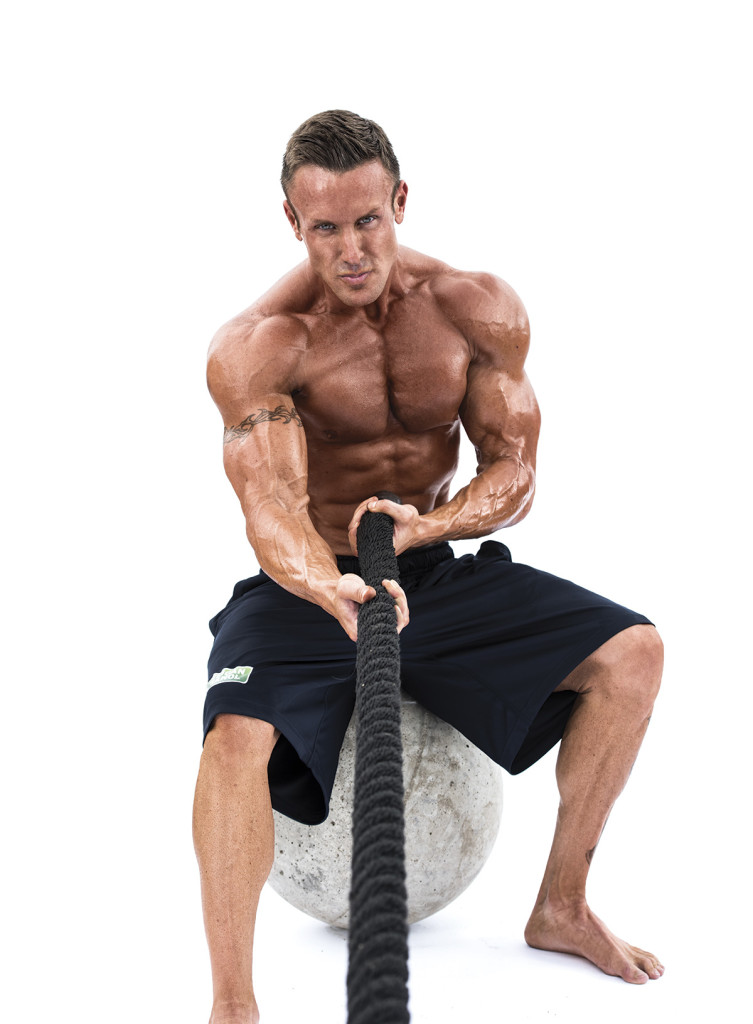
MC: What do you mean by “built my metabolism”?
BF: Let’s say I’m eating 2,000 calories a day and I drop it down to 1,200 and I do a bunch of cardio. What’s going to happen when I go back to 2,000 calories? My body is not going to be burning at that rate anymore. It adapts to what you are doing. You can build your metabolism slowly over time by actually adding calories. So for 10 months, week to week, I was adding fat and carbs. By the end I was eating three cups of oats every day, half a jar of peanut butter, and all my other food, and I was not gaining weight. When I started to diet, it was the easiest prep I have ever done.
MC: You sound like you do well with fat.
BF: My body loves the fat. I can eat a boatload of fat and it doesn’t affect me at all. I have done some DNA testing that showed that I do well with fat. I crave it whether it’s peanut butter, avocado, or coconut oil. I crave fat more than I crave carbs, by far.
MC: What do you do outside of the gym and the kitchen to stay fit?
BF: I’ve found that I need to have some me time, so I like to walk. I walk between three to seven miles every day, along with my cardio regimen. I don’t consider it cardio because it’s something I love to do. I am obsessed with those. I am religious in getting massages and chiropractic adjustments. I also do infrared sauna. For everything you do to put your body through hell, you have to do something for it. IM







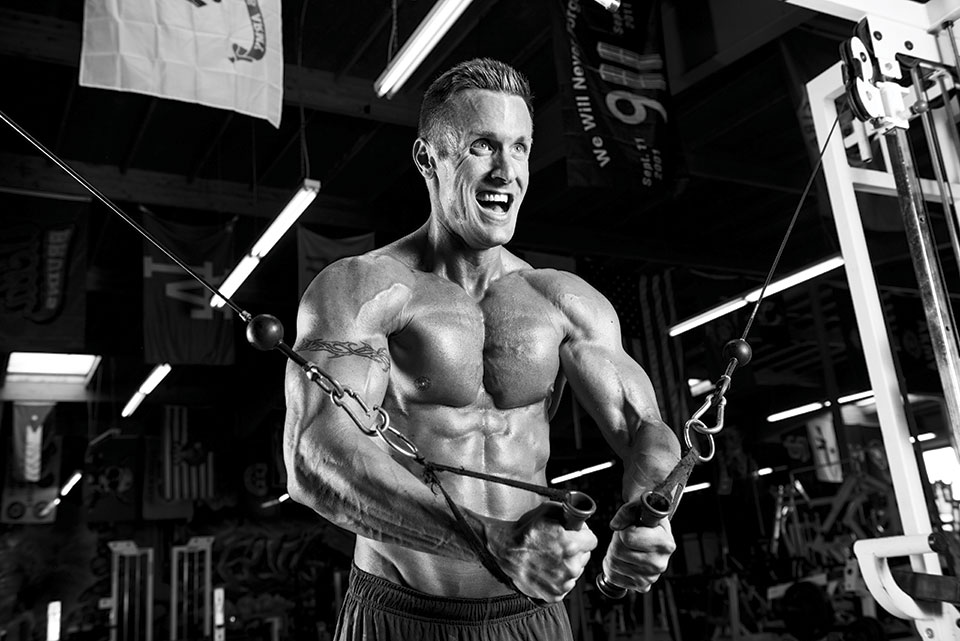





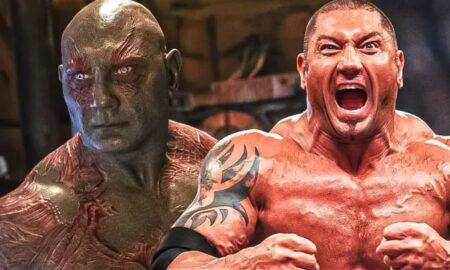
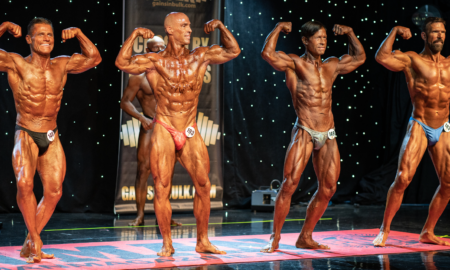
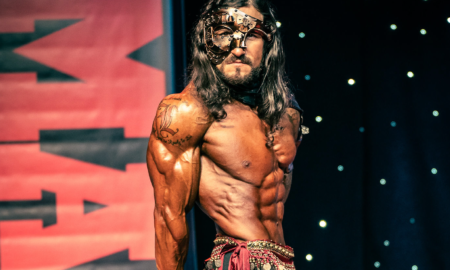
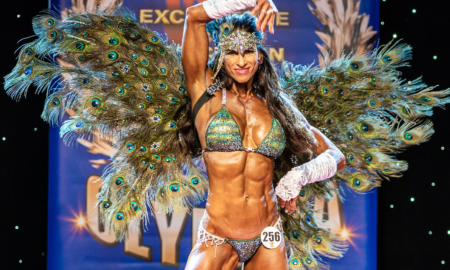
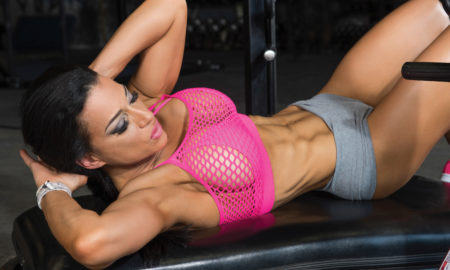
You must be logged in to post a comment Login